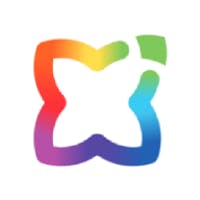Think about the industrial revolution. Mines, factories and mills. Production lines, mass markets and standardisation. It is easy to see how we figured that education could work the same way. But revolutions have a habit of feeding the next one.
The cotton mills are gone from many of our landscapes and hinterlands in (ironically) the more “industrialised” nations, and the ones which remain are largely empty of people. Textile mills still dot the Yangtze and Uttar Pradesh, but another mill has risen as a symptom of the age of industrial thinking. A mill that absolutely disregards personal learning and the uniqueness of every learner.
The essay mill in the absence of personal learning
The essay mill is the bane of traditional education. A glitch in the matrix where learners can contract out their dissertations, projects, reflections, and book reports, and evade detection of plagiarism software.
Essay mills are well established, and even have handy price calculators, special offers and even “coronavirus discounts”. Services range from writing the full text, to just the structure and outline, or offering detailed feedback on the first draft.
Learners often send in samples of their previous writing to ensure the style, tone and vocabulary range are consistent. This is not personal learning, but a standardized product, and you have to hand it to the essay mills; objectively speaking, the product is top class.
Australia ain’t having it. Cheating spiked during the shift to distance learning in the pandemic, and the patience of institutions wore thin. Down under, they followed Ireland in banning the essay mills. Fines of up to AU$100,00 and even up to two years in prison for offering the service with, thankfully, no penalty on learners for soliciting such services.
Read the Twitter feeds, the Academic news sites, the newspapers. The agreement is unanimous: mills bad, ban good. Do we disagree? Not really, but what concerns us is the scope of the discussion. It is ok, apparently, to offshore and to outsource production when it benefits the privileged, but when those on the production line do the same, the system will not suffer it.
This is the perfect opportunity to be talking about the million-dollar question.
Why do learners turn to such services in such numbers?
Essay mills are a symptom of demand and nothing more. Like the “war on drugs” and the “war on terror”, going after the symptom and not the cause is like taking ibuprofen for toothache, but ignoring the dentist and keeping your fridge full of sugary drinks.
Integrity is an important value in life, “cheating” cannot be condoned, and honesty makes the world go round. But we cannot stop the line of thought there.
The bill currently making its way through the UK House of Lords does tie the banning of essay mills to a wider “skills” bill, but a quick read of the bill itself and you quickly see that the focus is simply on changing the skills focus that the economy demands, not to personal competencies like critical thinking, but to vocational skills like green technology and coding.
They’ve moved the goalposts, but the game remains the same.
Learners who are detached from their own sense of internal motivation are more likely to use essay mills. Learners who are feeling anxiety around assessment and/or lack of confidence in their own abilities are more likely to use essay mills. Psychologist Dr. David Rettinger tells us that
“Some do it when they don’t see the value of work they’re assigned, such as drill-and-kill homework assignments, or when they perceive an overemphasis on teaching content linked to high-stakes tests.”
The assessment types which are most commonly connected with subcontracted services are also the most likely to be set by teachers. Even on tasks that learners perceive as “high-value”, learners can rationalise cheating because they refuse to let a single bad grade ruin months of progress and hard work.
Every time we dig into the “why”, the answer remains the same. The system is truly broken.
Personalised learning as the cure for the root cause?
The much-vaunted evidence revolution has not really provided much data on the link between a learner-directed, personalised learning and reduction in cheating.
But you know what? When learning is genuinely personal, a learner is following their Ikigai, is not subject to standardised testing, has co-created the markers of progress, is encouraged to reflect on their own learning goals and how it connects to interests that they discovered through play and iteration, what do you think might happen?
When “assessments” are not just essays and reports, and learning vitae replace cold numbers and episodic markers, what do you think might happen?
The absence of empirical evidence does not mean we are wrong, and we need your help on this one. If you are engaged in supporting learners with personal learning, whether it be this paradigm or another, collaborate with us at Learnlife and be a personal learning Champion.
Written by


